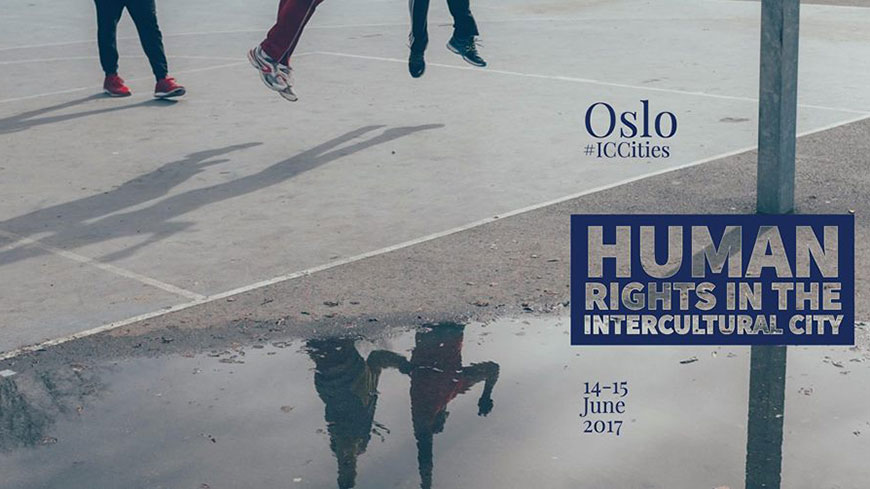On 14-15 June 2017, the intercultural Cities Programme organized, in cooperation with the Intercultural city of Oslo, a thematic seminar on “Human rights in the intercultural city”.
Indeed, the ICC Programme was born out of an understanding that individual human rights are paramount to societies which are inclusive, fair and prosperous. Safeguarding human rights and ensuring equity has been a prime policy goal for public authorities, in particular in their development of intercultural strategies.
Yet cooperation between interculturalists and human rights defenders has not always been evident and yet, today more than ever, the positive value of diversity is put at stake by a challenge that affects both the human rights regime and the intercultural policy paradigm: the return to identity politics that threatens at the same time some of our fundamental freedoms and community cohesion.
The seminar underlined the strong links between the inclusive integration approach of the ICC programme and human rights. Intercultural cities recognise that culture and identity are not static and thus they promote policies for societies under permanent development, considering change as an opportunity. The intercultural integration paradigm is also founded on the same underlining principles as human rights, i.e. equality and non-discrimination, justice, participation, inclusion, and cultural symmetry. Operationally, ICC promotes openness and spaces for (physical) interaction, organisation and participation, that are fundamental to the effective enjoyment of human rights. Finally the Programme acts as an enabling factors for making human rights a concern for all, as it promotes dialogue, exchange and mutual learning which makes both societies and the legal framework progress and anticipate social change to respond to people’s needs.
The Seminar was also the occasion to showcase examples of intercultural and human rights policies implemented by European cities, being they member of the Intercultural Cities programme or not. It also put forward the experience of civil society movements and organisations active in the field of freedom of religion and of thoughts, gender equality, LGBTi rights, and anti-discrimination. All those contributions nurtured the discussions with concrete examples from the ground.
In particular, four areas of work considered more specifically as they may pose new possible challenges under an intercultural perspective. These are: civil rights and non-discrimination, democratic rights and participation, and LGBTI rights.
To quote Eleanor Roosevelt, replying to how we can measure the progress in human rights, in fact “where, after all, do universal human rights begin? In small places, close to home—so close and so small that they cannot be seen on any maps of the world. Yet they are the world of the individual person; the neighbourhood he lives in; the school or college he attends; the factory, farm, or office where he works. Such are the places where every man, woman, and child seeks equal justice, equal opportunity, equal dignity without discrimination. Unless these rights have meaning there, they have little meaning anywhere. Without concerted citizen action to uphold them close to home, we shall look in vain for progress in the larger world”.




